About me
My research aims to understand the impact of climate change on tropical marine coastal ecosystems and organisms, focusing on Caribbean coral reefs and seagrasses. Using biogeochemistry, I quantify interactions between seawater chemistry and benthic communities to understand how physiological processes define coastal carbon cycling, and how stressors such as acidification and deoxygenation drive changes to these communities. My background in hands-on conservation motivates my interest in coral spawning, assisted fertilization, and larval rearing for restoration practices. I have worked with local communities and citizen scientists to support diversity and inclusion, an ongoing commitment and priority for my research moving forward.
Reef restoration and Conservation
After graduating in 2013 with a degree in Marine Biology from the University of St Andrews, Scotland, I trained as a dive instructor in Mexico, and began volunteering for a reef restoration project at the Hotel Akumal Caribe. In 2015 they hired me as the coordinator of their grass-roots community-led conservation program, Expedition Akumal, and with the support of Akumal Dive Center and their team of expert captains, divemaster, and instructors we installed the first coral nurseries in Akumal, in collaboration with Oceanus A.C and CEA.
In 2016, I trained with Professor Banaszak at the CORALIUM Laboratory at the NAtional Autonomous University of Mexico (UNAM) and SECORE International to incorporate coral sexual reproduction into the program, and I continue volunteering my time to this project every time I can get to Akumal in the summer – see more about this project here. Read more about this project in the article I wrote for the Conversation here.
In Mexico, I learned that community participation and stakeholder support are critical to conservation science, and I built alliances through training and outreach with local dive professionals, captains, and tourism operatives, such as long-term collaborators, Akumal Dive Center. I am committed to maintaining these relationships for ongoing conservation and actively encourage participation of citizen scientists in research. Check out www.CoralObserver.com, the app I developed with my friend at Quantum Designs for citizen science data collection.
PhD studies
My PhD was undertaken with Dr Adrian Bass at the University of Glasgow, Scotland (October 2017 – June 2022) in collaboration with the National Autonomous University of Mexico, where I conducted research under the supervision of Professor Ania Banaszak. I initiated international collaborations throughout my PhD including lab visit to Nova Southeastern for training and mentorship with Dr Tyler Cyronak and a graduate internship placement at Mote Marine Laboratory.
My PhD thesis, Quantifying the benthic metabolism of tropical coral reefs and seagrasses in a changing climate, investigated carbon cycling processes within benthic communities in the context of conservation. Using biogeochemical techniques, I measured the physiological processes of Caribbean corals, algae, and seagrasses, ranging from the organism to the ecosystem. At the scale of the coral colony, I measured changes in carbonate chemistry to calculate rates of calcification, respiration, and photosynthesis under controlled conditions, and I explored the relationship between these processes and light by modelling metabolism-irradiance curves to track their hyperbolic relationship over 24-hour cycles.
For in-situ assessments, I developed a low-cost benthic chamber from materials that can be easily sourced and assembled in remote locations to measure community metabolism in coastal ecosystems, and deployed them over seagrass and coral-algae patches using 3D photogrammetry to normalize metabolic rates to surface area and volume. The published study was one of PeerJ’s ‘Top 5 most viewed’ Aquatic and Marine Chemistry and Biogeochemistry articles in 2022. I scaled up to the ecosystem level with a review of biogeochemical methods for measuring coastal carbon dynamics, comparing datasets between benthic boundary layer, autonomous sensors, and traditional enclosures in a seagrass-sediment bay
Funding and Awards
My research has been funded by fellowships (Fulbright, Smithsonian) and small grants, including:
- Scottish Alliance for Geoscience, Environment, and Society (SAGES)
- University of Glasgow research, mobility, and conference support grants
- Coral Conservation Society research and education grants
- The Sir Richard Stapley Educational Award
- Funds for Women Graduates (FfWG)
- Protect Our Reefs Award
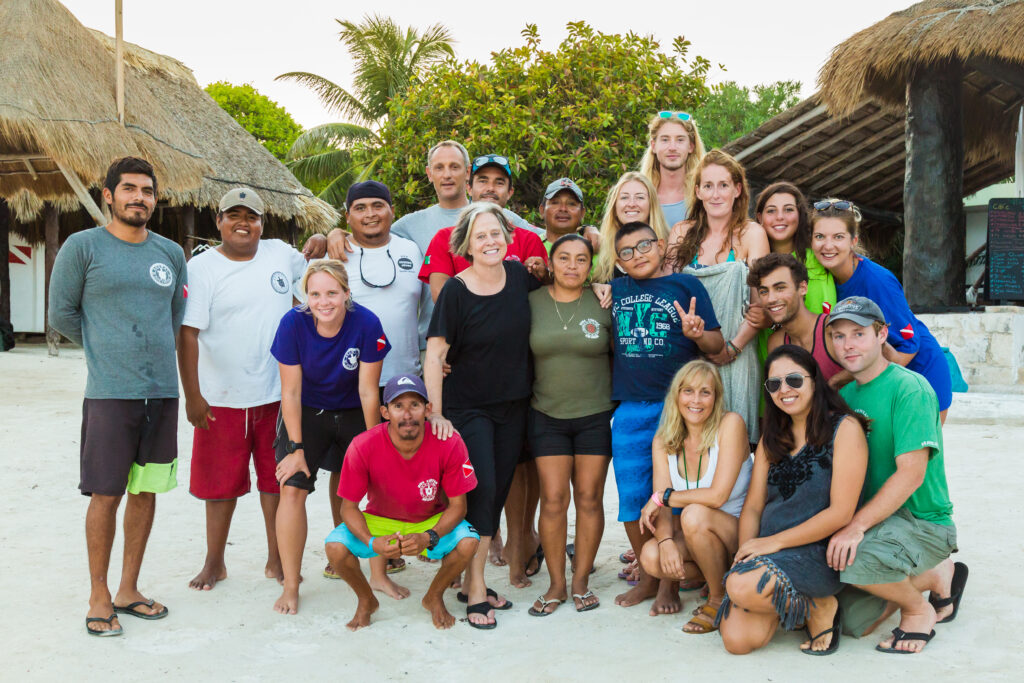
Teaching
I taught scientific diving, reef ecology, and supervised thesis projects for students of Operation Wallacea during 2-3 month expeditions each summer throughout my studies. Thanks to their support I developed and deployed low-cost benthic chambers to measure reef metabolism.
Read the paper here: Mallon J, Banaszak AT, Donachie L, Exton D, Cyronak T, Balke T, Bass AM. 2022. A low-cost benthic incubation chamber for in-situ community metabolism measurements. PeerJ 10:e13116 https://doi.org/10.7717/peerj.13116
In January 2023 I finished my first postdoc position, a 6-month postdoctoral fellowship at the Smithsonian Marine Station in Fort Pierce, Florida, where I conducted experiments on corals at different life stages to understand the impact that ocean deoxygenation has on survival and metabolism of Caribbean corals. Read more about the project here.
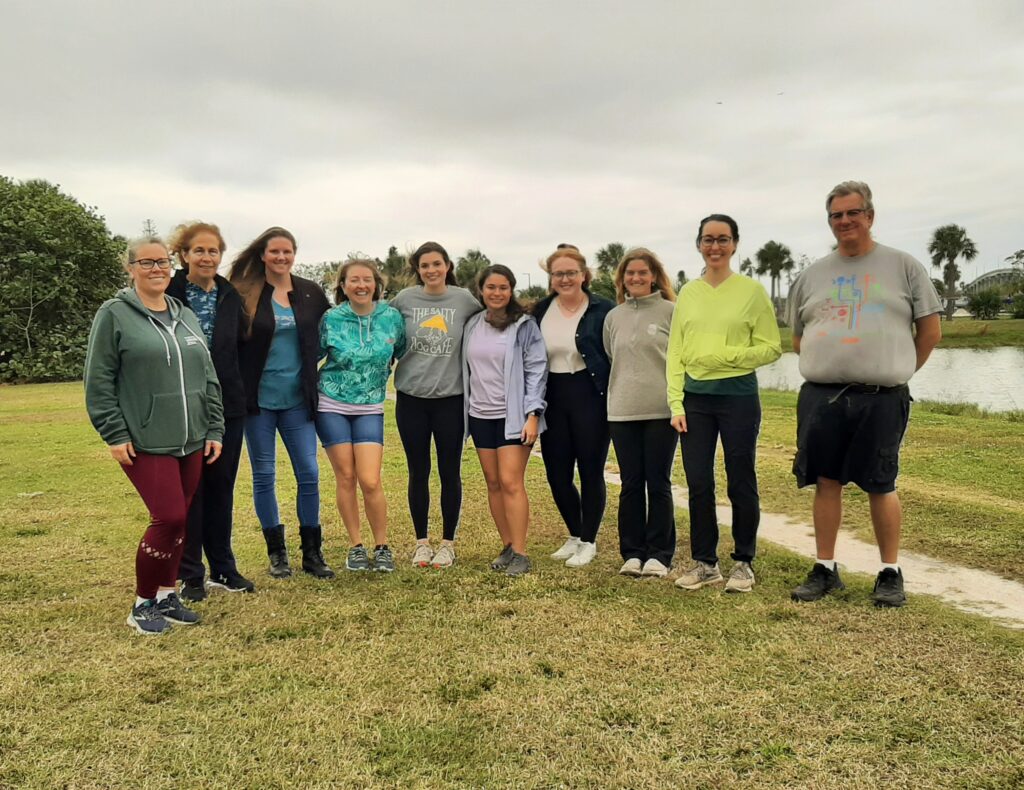
In addition to research, I am dedicated to communicating the importance of coral reefs to a wider audience and to engaging the public in efforts to protect and conserve these vital habitats. Through outreach activities, I attempt to inform, inspire, and advocate for the conservation of coral reefs and associated ecosystems. If you are interested in collaborations to would like to learn more get in touch!
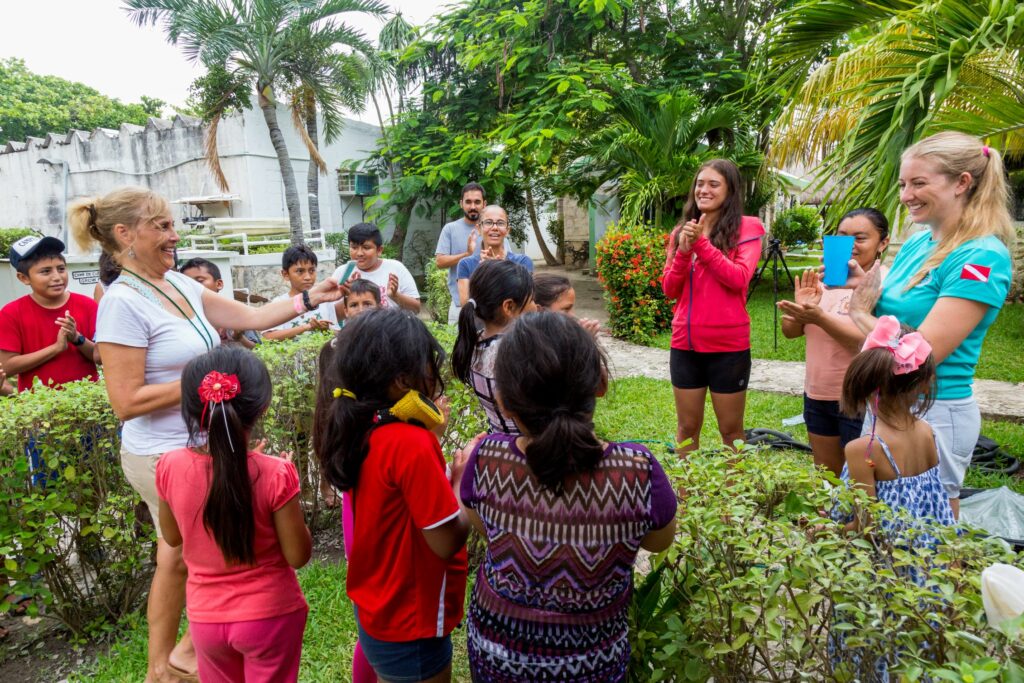
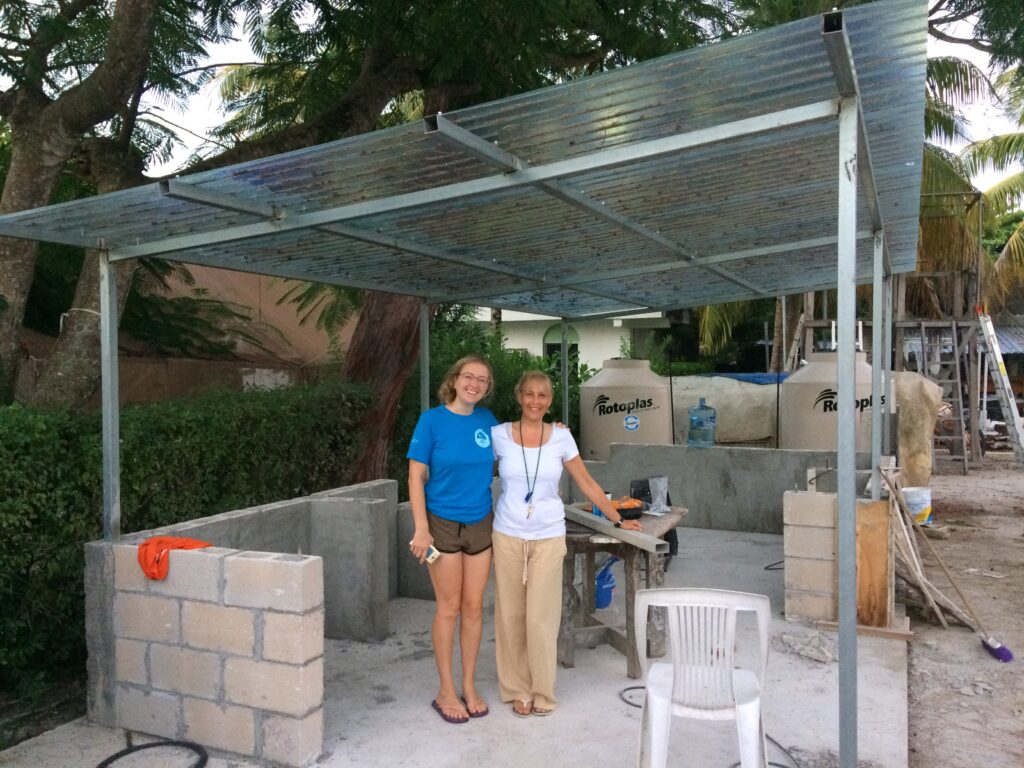
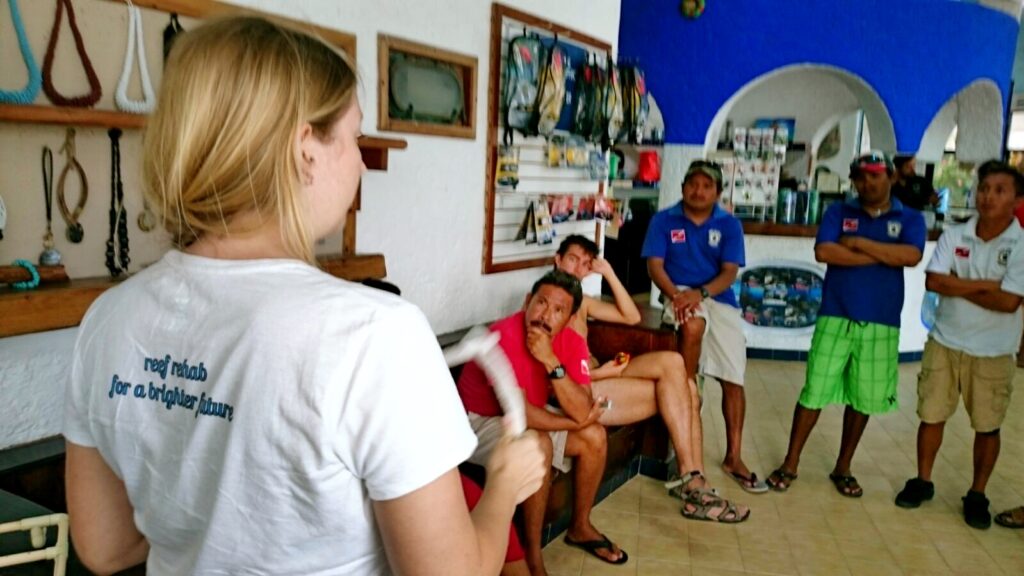
In 2014 I began volunteering in Akumal with a fledgling reef restoration program ‘Expedition Akumal’ initiated and funded by the Hotel Akumal Caribe and Akumal Dive Center, in collaboration with Oceanus A.C., and in 2015 I was hired at the program manager. This was a first attempt at reef restoration in Akumal, which relied upon volunteers from the local diving community. Together we installed the first coral nurseries of Akumal in 2015, by propagating fragments of Acropora cervicornis (Staghorn coral) to populate in-situ nurseries. Between 2015 to 2019 we transplanted over 1000 fragments of coral onto Akumal’s reefs, trialing different methods and monitoring survival. In 2017 I initiated a coral spawning monitoring program A. palmata gametes during mass spawning events, fertilised them in the lab, and created thousands of juvenile corals. In 2018, I presented a poster about our work in Akumal at the inaugural Reef Futures Conference in Key Largo Florida.
This work was made possible thanks to funding from the Coral Conservation Society, in-kind donations from Hotel Akumal Caribe and Akumal Dive Center, and the unwavering support of our dive volunteers. If you would like to contribute with a financial donation, please get in touch. You can also make a direct donation to the Coral Conservation Society.